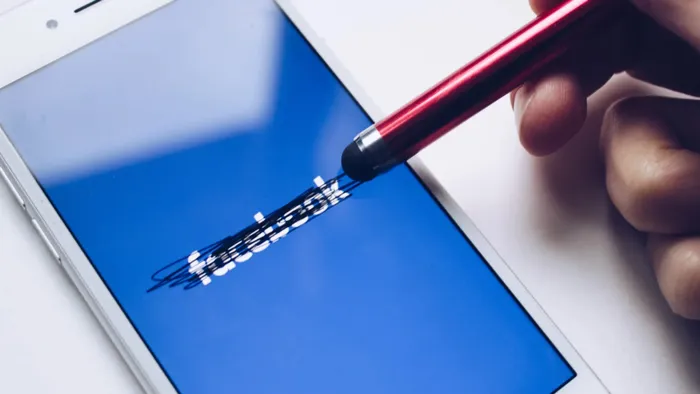Censorship of pro-Palestine content on social media continues

Image: Facebook – The bias and censorship by social media platforms limits Israeli accountability for its crimes in Palestine and feeds into the dehumanisation of Palestinians, the writer says.
By Peoples Dispatch
According to a November 17 report by Forbes, the Israeli state prosecutor’s office has sent around 9,500 requests since October 7 to Meta to remove content relating to Israeli actions in Gaza
On November 23, Francesca Albanese, the UN special rapporteur on Human Rights in occupied Palestinian territories expressed her apprehensions that her page on X was shadowbanned. She noted that if it’s true “it would be an intolerable affront to freedom of expression and to the UN”.
Albanese was alerted by some users of the social media site claiming that they were unable to search her page. Whenever they entered her username, unrelated parody pages were brought up (this has since been rectified). The UN rapporteur has been vocal against Israeli war in Gaza and often been targeted by the Zionist groups for her critical positions on its policies in the occupied Palestinian territories.
Albanese was not the first person since the beginning of the Israeli war on Gaza who has claimed social media sites including Facebook, Instagram, YouTube and TikTok have been targeting pro-Palestinian voices by demoting, deleting or shadowbanning posts related to Israeli war crimes in Gaza.
The actions of these social media sites have been in direct response to actions by Israel — according to a November 17 report by Forbes, the Israeli state prosecutor’s office has sent around 9,500 requests since October 7 to Meta to remove content relating to Israeli actions in Gaza. Israel reports that 94 percent of this content that was reported was taken down.
Activists and other social media users have complained that any post with words expressing solidarity with the Palestinian cause or criticising Israeli war in Gaza which has killed over 15,000 Palestinians, mostly children, women and the elderly, were hidden, limiting their reach, and ending engagement with a wider audience.
Some pages even reported being completely blocked or taken down, as was the case with the Instagram page @eye.on.palestine, taken down with over 6 million followers, which shared regular updates from the ground.
Quds News Network, a social media news portal reporting from ground in Palestine with over 10 million followers on Facebook claimed in October that its pages in English and Arabic were taken down from the site on Israeli requests.
One incident which angered the activists the most was Instagram adding “terrorism” to some of the posts depicting Palestinian suffering during the first weeks of Israeli bombings in Gaza.
Though Instagram later apologised, claiming the labelling was caused by a bug, such “errors” are often used by the social media giant to avoid any actions to directly address the allegations of censorship and assaults on freedom of speech and expression.
In other instances, well known journalists and activists have found they have limits on the reach of their pages, or their posts have been simply taken down, using the vague excuse of violations of “community guidelines” by Instagram or Facebook.
At the same time, Meta has allowed hateful and dehumanising content from Israeli users against Palestinians to circulate unchecked.
Since October 7, the Palestinian Observatory for Palestinian Digital Rights Violations (7or) has documented 532 cases of harmful content, which include incitement to violence and hate speech, across Meta’s three platforms.
The Palestinian Digital Rights Coalition wrote to Meta to take action against such social media posts earlier this month.
Stifling Palestinian voices in the time of crisis
Speaking to the Guardian, Nadim Nashif, founder and director of social media watchdog group 7amleh, the Arab Centre for Social Media Advancement, accused Meta of “stifling Palestinian voices in the time of crisis”.
Meta has been accused of bias against the Palestinian cause in the past as well. One of its internal studies last year had noted that the company’s “actions in May 2021 appear to have had an adverse human rights impact … on the rights of Palestinian users to freedom of expression, freedom of assembly, political participation, and non-discrimination, and therefore on the ability of Palestinians to share information and insights about their experiences as they occurred.”
The inquiry was commissioned following the complaints of bias during 2021 Israeli attacks on Gaza. Several Facebook and Instagram users had complained that the site had taken down or demoted posts related to protests against the forceful eviction of Palestinians from the Sheikh Jarrah neighborhood in occupied East Jerusalem. They claimed that their posts documenting the Israeli atrocities and protesting its attacks on Palestinians disappeared without any explanation.
“Palestinian content is unfairly targeted, while hate speech and incitement against Palestinians go largely unchecked… this crackdown prevents the world from hearing the truth from the ground,” Nashif told The Guardian.
Given the widespread bias and censorship their version encounters in the so-called mainstream media, print or electronic in the west, social media was used as an alternative medium.
As Electronic Frontier Foundation said in the statement earlier, “unjustified takedown during crises like the war in Gaza deprives people of their right to freedom of expression and can exacerbate human suffering”.
Censorship on social media platforms not only deprives the Palestinians of the opportunities to tell their stories, it also dehumanises them and strengthens Israel’s impunity.
This article was first published on Peoples Dispatch
Related Topics: